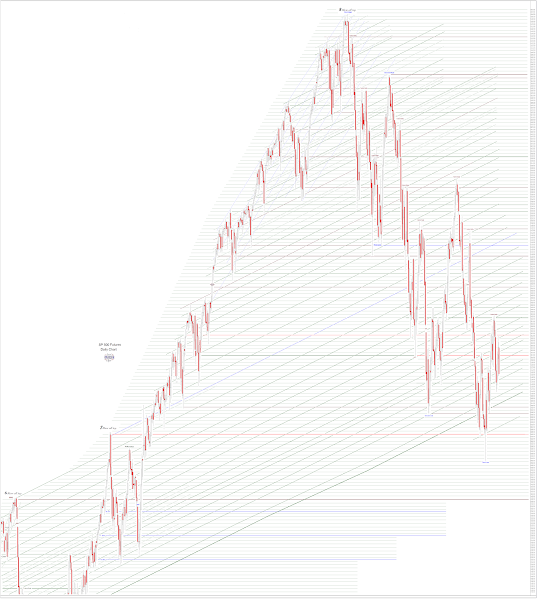"A synthetic instrument has no real assets. It is simply a bet on the performance of the assets it references. That means the number of synthetic instruments is limitless, and so is the risk they present to the economy. Synthetic structures referencing high-risk mortgages garnered hefty fees for Goldman Sachs and other investment banks. They assumed an ever-larger share of the financial markets, and contributed greatly to the severity of the crisis by magnifying the amount of risk in the system.
Increasingly, synthetics became bets made by people who had no interest in the referenced assets. Synthetics became the chips in a giant casino, one that created no economic growth even when it thrived, and then helped throttle the economy when the casino collapsed."
Senator Carl Levin, Wall Street and the Financial Crisis, April 27, 2010
“The greatest evil is not done now in sordid dens of crime. It is not even done in concentration camps and labor camps. In those we see its final result. But it is conceived and ordered in clear, carpeted, warmed, and well-lighted offices by quiet men, with white collars and cut fingernails and smooth-shaven cheeks, who do not need to raise their voice.”
C. S. Lewis, The Screwtape Letters
“Proposals to bring even minimalist regulation were basically rebuffed by Greenspan and various people in the Treasury,” recalled Alan S. Blinder, a former Federal Reserve board member and an economist at Princeton University. “I think of him as consistently cheerleading on derivatives.”
Arthur Levitt Jr., a former chairman of the Securities and Exchange Commission, said that Mr. Greenspan’s authority and grasp of global finance consistently persuaded less financially sophisticated lawmakers to follow his lead.”
Peter S. Goodman, Taking Hard New Look at a Greenspan Legacy, Oct. 8, 2008
"The Federal Reserve is considering arguments that Wall Street banks provide hard-to-replace services in some of these areas. The separation between banking and commerce has served markets and our economy quite well for decades. And the erosion of that barrier is clearly doing harm today. Any discussion of these physical commodities activities must begin and end with the need to protect our economy from risk, our markets from abuse and our consumers from the effects of both.
Wall Street banks with near-zero borrowing costs, thanks to easy access to Fed-provided capital, have used that advantage to elbow their way into commodities markets. Bad enough that this competitive advantage hurts traditional commercial businesses; worse that it opens the door to price and market manipulation and abusive trading based on nonpublic information."
Senator Carl Levin, Wall St Banks and Physical Commodities, Nov 2014
"The crash has laid bare many unpleasant truths about the United States. Recovery will fail unless we break the financial oligarchy that is blocking essential reform."
Simon Johnson, The Quiet Coup, May 2009
“The larger the bank, the greater the potential spillover if it defaults; the higher its leverage, the more prone it is to default under stress; and the greater its connectivity index, the greater is the share of the default that cascades onto the banking system. The product of these three factors provides an overall measure of the contagion risk that the bank poses for the financial system. Five of the U.S. banks had particularly high contagion index values — Citigroup, JPMorgan, Morgan Stanley, Bank of America, and Goldman Sachs.”
Office of Financial Research, Systemic Importance Indicators, February 2015
“The essence of a speculative bubble is a sort of feedback, from price increases, to increased investor enthusiasm, to increased demand, and hence further price increases. Major speculative bubbles, as I argued in Irrational Exuberance, are always supported by some superficially-plausible popular theory that justifies them, and that is widely viewed as having sanction from some authority figures. These may be called new-era theories.”
Robert Shiller
After hours some of the new era stocks, and in particular the alternative dimension of the crypto-sphere, were going up in flames.
The elections did not have a large effect so far because the crux of the matter is still undecided, although the big red wave has clearly not materialized.
Stocks slumped hard. New era, child-of-the-bubble stocks were being pummeled after hours.
The spokesmodels were wringing their hands and clutching their pearls over the implosion ongoing in the crypto bubble.
Fraud? We are shocked, shocked.
The Dollar rose, and gold and silver pulled back a bit from Friday's moonshot.
Let's keep an eye on that one.
Volatility remains in the forecast.
CPI information tomorrow.
Have a pleasant evening.










































